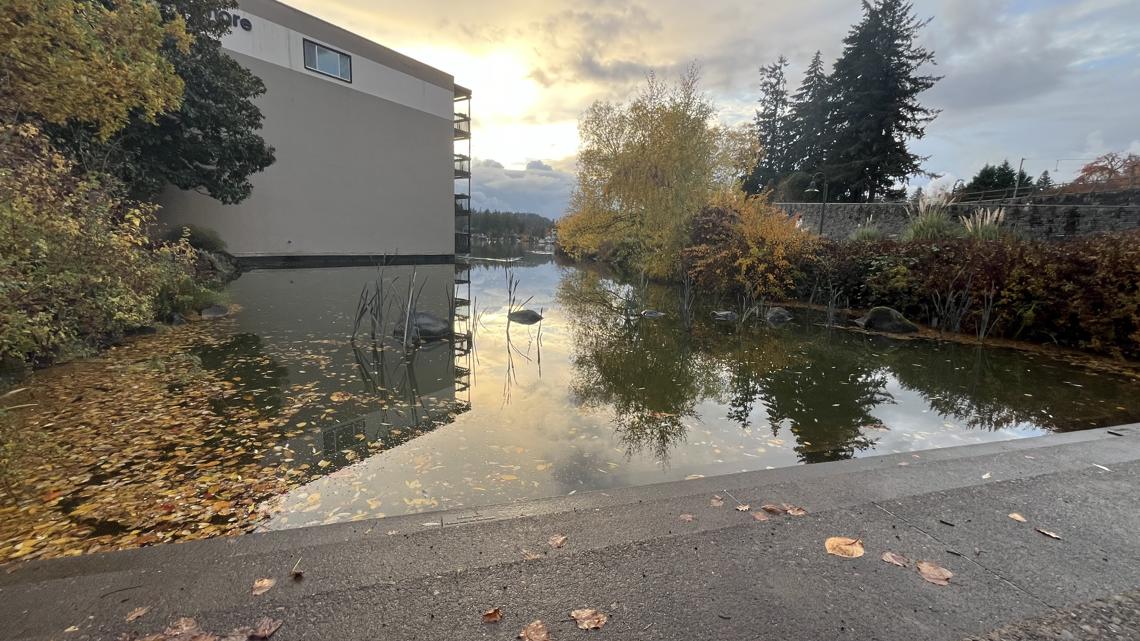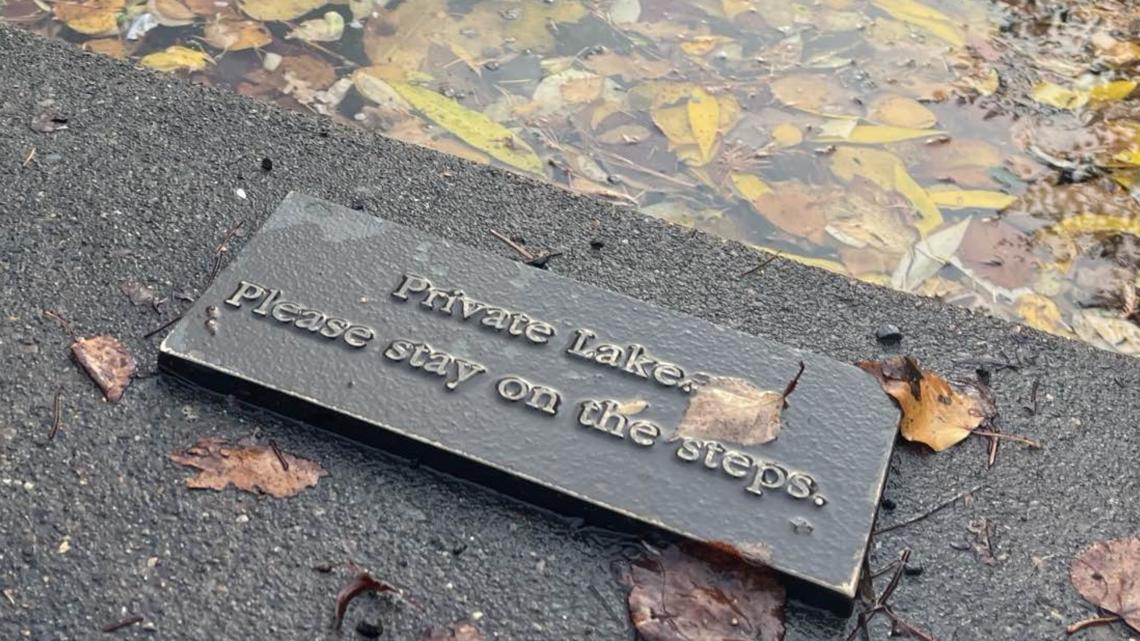LAKE OSWEGO, Ore. — A Clackamas County judge has sided with the plaintiffs in a long-running lawsuit over the public's right to access Oswego Lake. In an opinion released Wednesday, Judge Kathie F. Steele declared that an ordinance banning public access to the lake through city-owned parks is illegal, and ordered the city to allow access through Millennium Plaza Park.
It wasn't a complete victory for the plaintiffs; there were three potential public access points at issue in the case, and Steele did find that the city had a reasonable basis to restrict access at the other two: Sundeleaf Plaza and the Headlee Walkway. Still, the ruling for Millennium Plaza Park opens at least one route for public access.
The case dates all the way back to 2012, when the city first passed the ordinance. Plaintiffs Mark Kramer and Todd Prager sued, arguing that the lake is a public body of water under the Oregon Constitution. They claimed the city's ordinance — coupled with the fact that all other land around the lake is privately owned — amounted to a de facto ban on public access.
"Maybe I was naïve in the beginning and just thought that it’s a public lake, we’re at a public park and there should be public access," Prager said in an interview Thursday, "It seemed pretty opened and shut. The surprising part was the City of Lake Oswego really fighting this on behalf of a private corporation."
The Lake Oswego Corporation, which controls the lake and is collectively owned by lakeside property owners, joined the lawsuit on the city's side, arguing that the lake was never public to begin with. The city's argument was more limited — it claimed the restriction was a safety and liability issue because the lakeside parks had not been built for public access.


The case went all the way to the Oregon Supreme Court, only to be kicked back down to Clackamas County Circuit Court in 2019. The case was then split into two phases, the first of which would determine whether the lake was public under the state constitution's definition. The plaintiffs ultimately won on that question in 2022.
The Oregon Constitution does allow local governments to restrict access to public waterways, but those restrictions have to be reasonable, such as for health and safety concerns. With the lake established as public, the second phase of the case looked at whether Lake Oswego's policy met that standard.
An advisory jury concluded that there was a reasonable basis for restricting access through Sundeleaf Plaza and Headlee Walkway, but it found no basis for restricting access through Millennium Plaza Park. The jury's ruling was not binding, but Steele announced in her Wednesday ruling that she would accept and follow the jury's reasoning.
"She granted access at this location, where we’re standing now [in lower Millennium Plaza Park] and said the public has a right to access here," Prager said, "She did acknowledge that the city might need a little bit of time to improve the access, that essentially there’s an injunction to provide public access."
The city claimed that it was unreasonable to allow access through the park because it had not been built in a way to safely accommodate it, but Steele wrote that "the design and construction of the park was provided by the city. They cannot be the cause of the 'unreasonableness,' and yet use that unreasonableness as a defense, as was done here."
Apparently in response to some of the city's concerns, she suggested modifying the park's steps so they are ADA complaint and avoid a nearby railroad easement. She also suggested that the city could come up with reasonable restrictions such as permits, fees and boat cleaning requirements as well as time, place and manner rules.
"Managing the risks is reasonable in Oswego Lake. Banning the public outright is unreasonable," she wrote.
She acknowledged that the city would need time to fix structural problems like the stairs, but declared that the 2012 ordinance is unlawful and ordered the city to take down a "No Access" sign by Millennium Plaza.
On Thursday, Bill Neumann, a lakeside homeowner told KGW that he understands Oswego Lake's appeal, but worries about water safety and water quality by opening it up to the public.
"You would think that after 36 years we would be used to it and bored with it but no, it’s just wonderful. We’re very fortunate," he said, "It’s the upkeep on the lake that we have paid for 36 years that we’ve been on the water. In the beginning it was cheap, $400 a year but now it’s $2000 I think, and it’s for water quality and so forth, and these people aren’t helping us with the share of that cost."



